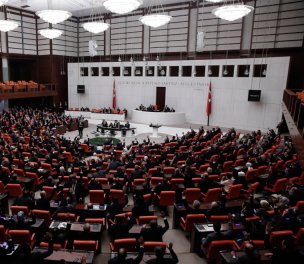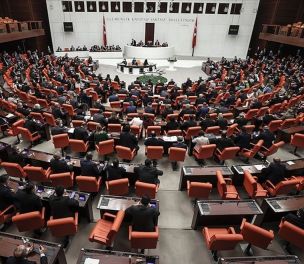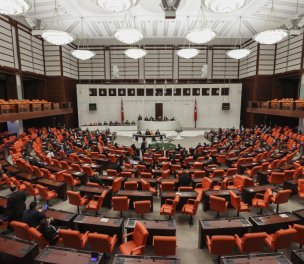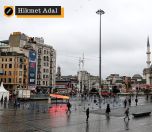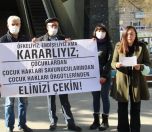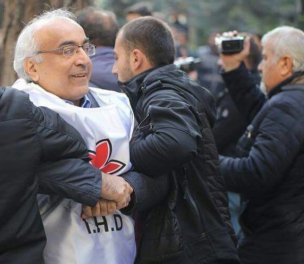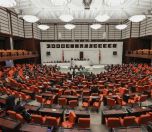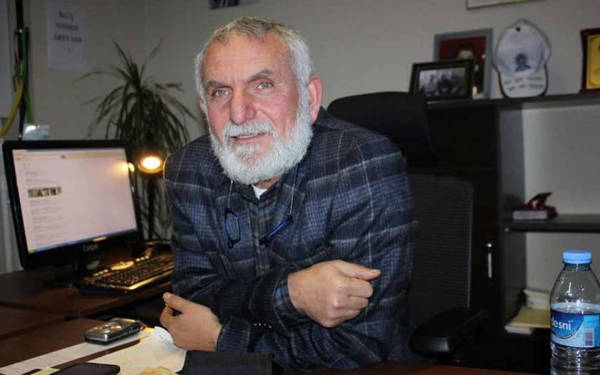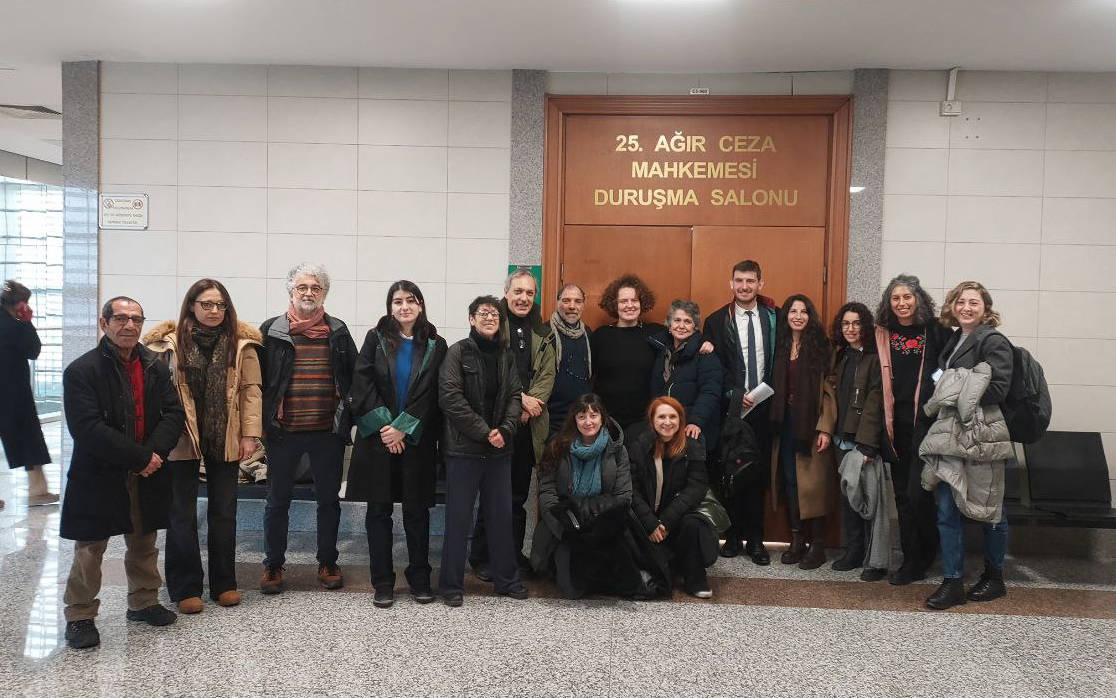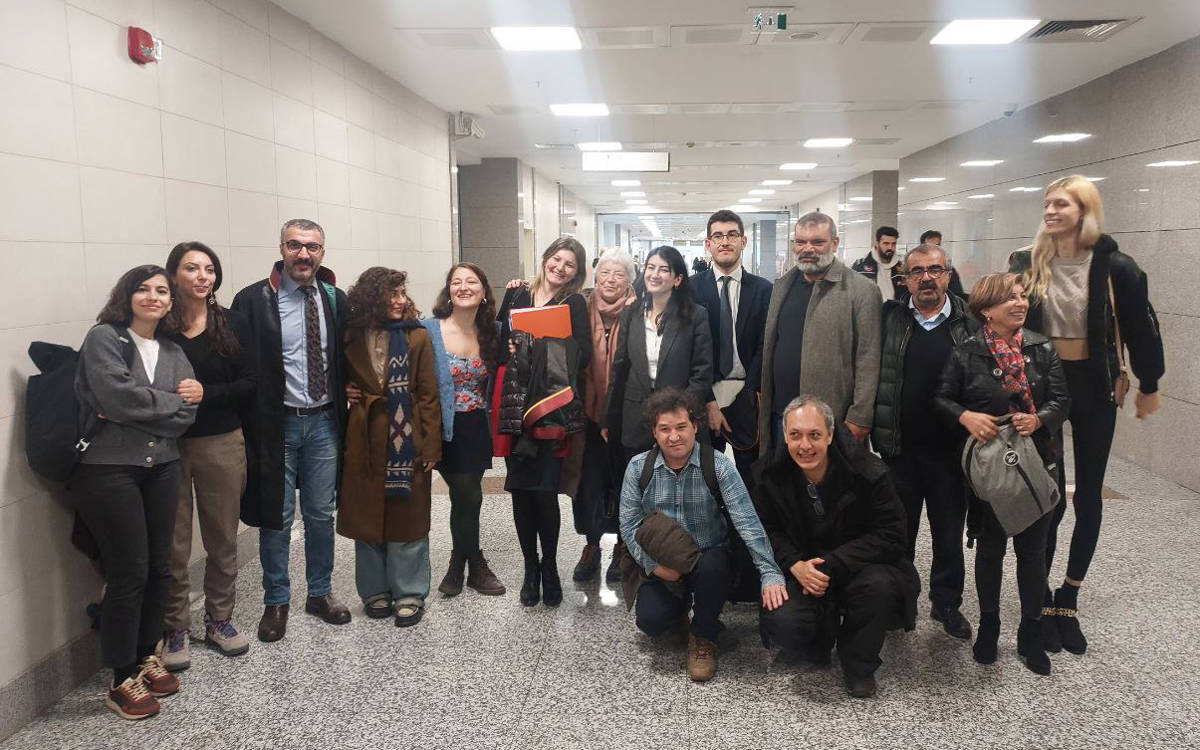* Photo: Fatoş Erdoğan / Twitter
Click to read the article in Turkish
Drafted by the ruling Justice and Development Party (AKP) and passed by the Parliamentary Justice Commission, a new bill has caused concerns and objections among Turkey's civil society circles as it foresees the appointment of trustees to non-governmental organizations (NGO) by the Ministry of Interior, among many other similar restrictions.
Speaking to bianet about  the issue, Prof. Şule Özsoy-Boyunsuz, an academic specialized in Constitutional law from Galatasaray University, says, "Turkey unfortunately has a very restrictive attitude towards rights and organizations."
the issue, Prof. Şule Özsoy-Boyunsuz, an academic specialized in Constitutional law from Galatasaray University, says, "Turkey unfortunately has a very restrictive attitude towards rights and organizations."
Commenting on the bill that is still debated at the General Assembly of the Parliament, Prof. Özsoy-Boyunsuz notes that the legislative proposal in question foresees very serious restrictions on acquired rights, underlining that it is against the Constitution as well as the European Convention on Human Rights (ECHR).
Reminding us that the Article 33 of the Constitution is about freedom of establishing associations, she stresses that as per this article, everyone has the freedom to establish an association without getting a permission just as they are free to be or stop being members of an association.
As underlined by Prof. Boyunsuz, the Constitution stipulates that freedom of association shall be restricted only by law and the forms, conditions and procedures of this restriction must be specified in the related law.
'It is not concrete or predictable'
"Closing a civil society organization or impeding their activities is a sanction that will completely eliminate this freedom," says Özsoy-Boyunsuz. Referring to the Article 13 of the Constitution, she adds:
"According to the Article 13 of the Constitution, in order for such a sanction to be imposed, the Constitutional Court shall undertake a strict inspection in terms of the principle of proportionality. Because, without their essence being touched, fundamental rights and freedoms can be restricted only for reasons indicated in the related articles of the Constitution.
"In this legislative proposal which foresees amendments to the Law on Associations, there are some articles regarding the hindrance of civil society organizations' activities and their closure. This is quite obviously against the Articles 13 and 33 of the Constitution.
"The law leaves a very wide room for judgement to the Ministry of Interior. The conditions defined in the law must be concrete and predictable. As a matter of fact, referring to the conditions where a delay in restricting rights and freedoms is objectionable, the Constitution says that these conditions must be concrete and predictable. But when we look at the authority to be granted, there is no concreteness or predictability.
'It is against Constitution and ECtHR'
"When the bill's second and most important contrariness to the Constitution is concerned, it is the violation of the right to establish an association and engage in activities in this association, namely freedom of association. There is something that touches the essence. According to what is written in the proposal, a trustee can be appointed in place of the dismissed executive.
"Civil society organizations themselves symbolize the freedom of association. If you, as the executive power, remove their administrative board members from office, then, the other members of the association must be free to elect new people in their place.
"Legally speaking, when you give the Ministry of Interior the authority of appointment, we cannot talk about freedom of establishing an association there, we cannot talk about freedom of association. This means that the essence is touched quite gravely.
"Just as all these are against the Constitution, they are also against Article 11 of the European Convention on Human Rights (ECHR). The legislative proposal is well below the standards introduced by the ECtHR. Freedom of association is completely eliminated or made dysfunctional. In other words, the government might wake up one morning, pick an association and shut it down the next morning. This law has no predictability.
'It doesn't suit principle of social state'
"The only problem is not about freedom of association. The bill also has some articles foreseeing restrictions on fundraising. As far as we infer from this bill, the government does not want civil society organizations to struggle against poverty, which has become a permanent problem in Turkey.
"It must be thinking that the masses, whom it has abandoned to starvation, will be dependent on it so that it can consequently buy their political loyalty; because when we look at the bill, it foresees an amendment that will restrict the aids of civil society organizations.
"I think that this legislation does not suit the principle of social state. All these articles look like an omnibus bill. It has nothing to do with preventing the financing of weapons of mass destruction or that of terrorism.
"It is nothing other than an attack targeting the freedom of association and raising donations. These are things that even the putschists of September 12 [1980] could not have thought of."
CLICK - 'A dangerous course of events for human rights in Turkey'
CLICK - 'The bill foresees the same process for civil society as the State of Emergency'
(HA/SD)





.jpg)
